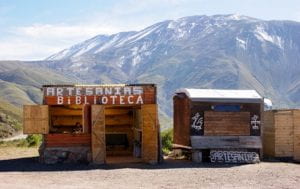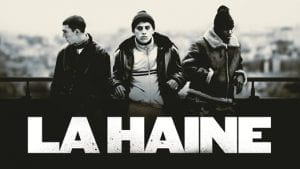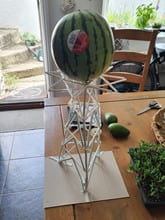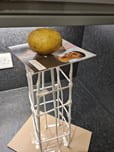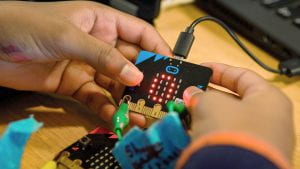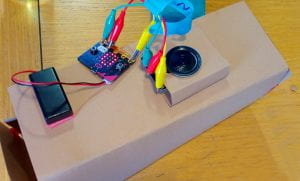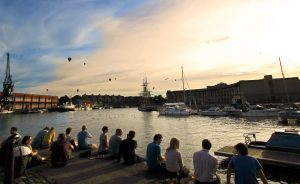
As the academic year 20-21 draws to a close, we in the Widening Participation team want to reflect on the challenges and successes we’ve had delivering our outreach programmes amidst the continuing pandemic. It was paramount to us that we strengthened our support towards students both in the Bristol area and beyond. We decided to face this challenging educational situation as an opportunity for development, turning our programmes and events into exciting new formats and developing new activities to better adapt to this ever-evolving situation.
In response to the pandemic, in addition to our long-standing partnerships with charities like IntoUniversity, this year we have been pleased to partner with Brightside and the Brilliant Club to offer additional support to those young people most affected by the current situation. Through Brightside, we offered 1:1 mentoring to 150 young people nationally, helping them explore their future options and receive support and guidance from current students. In collaboration with the Brilliant Club, we are providing additional tuition opportunities for local schools within Bristol, to help mitigate the learning lost to the pandemic.
Throughout the year, we have run some of our flagship programmes in new ways, including a fully virtual version of our well-established Access to Bristol programme. Created for local Year 12/13 students and Mature students undertaking an Access to HE course, this programme facilitates access to the University by offering all who complete it a guaranteed contextual offer or interview. This year, Access to Bristol welcomed over 500 students to 13 subject streams over 10 weeks in total. Access to Bristol will run again in 21-22 -please register your interest here! We also strengthened our Virtual Resources: these have proven very popular, allowing prospective students to experience university-level resources and teaching online, and offering teachers and educators support in their work. If you would like to access these resources, please sign up here! Teachers can also sign up to the popular Schools and Colleges newsletter, which allows them to keep up to date with all opportunities Bristol is delivering for education professionals and their students.
In spring 2021, we launched Next Step Bristol, a programme for students in Year 13 from Black or Asian backgrounds. This programme was specifically designed to be delivered virtually, allowing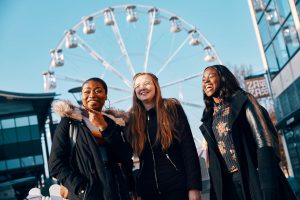 participants to experience the university remotely, through a series of virtual events including academic sessions, study skills support, student-led society events and UCAS application support. You can read more about this year’s Next Step Bristol in Arjun’s post on our blog, reflecting on his experience as a Student Advisor at this year’s programme. We also launched STEM Up (22 April – 20 May): designed for students on the first year of an A-Level, BTEC, or prospective mature students, the course comprised 5 online sessions which gave students the chance to experience what studying a STEM subject at the University of Bristol might be like, as well as to ask questions of our current students. Read all about the first STEM Up session in our blog post! Our Science for Life Roadshows offered another opportunity for students to experience the breadth of expertise in the Life Sciences at the University of Bristol, with sessions delivered by our postgraduate research students.
participants to experience the university remotely, through a series of virtual events including academic sessions, study skills support, student-led society events and UCAS application support. You can read more about this year’s Next Step Bristol in Arjun’s post on our blog, reflecting on his experience as a Student Advisor at this year’s programme. We also launched STEM Up (22 April – 20 May): designed for students on the first year of an A-Level, BTEC, or prospective mature students, the course comprised 5 online sessions which gave students the chance to experience what studying a STEM subject at the University of Bristol might be like, as well as to ask questions of our current students. Read all about the first STEM Up session in our blog post! Our Science for Life Roadshows offered another opportunity for students to experience the breadth of expertise in the Life Sciences at the University of Bristol, with sessions delivered by our postgraduate research students.
We also held the second Destinations Conference, in partnership with the African Caribbean Society (ACS). The Destinations Conference was a one-day event inviting students from Black backgrounds to experience an academic session in a chosen subject, delivered by one of our UoB expert academics, along with a Q&A with current UoB students from those subject areas. We also had a very special keynote from Lawrence Hoo, Bristol-based poet and co-founder of the Cargo creative project. Read more about the Destinations Conference in this blog post.
In another debut, we collaborated with six other veterinary schools across the country in the national vet school WP network, the British Veterinary Association and British Veterinary Ethnicity & Diversity Society to deliver the first ever Vet National Programme. Hosted by the University of Bristol with a panel of 26 guest speakers, student ambassadors and staff from the 7 Veterinary schools (Bristol, Nottingham, Liverpool, Surrey, Royal Veterinary College, Edinburgh and Cambridge), we had over 180 attendees who asked over 100 questions on student life, campus, curricula and work experience.
We also debuted Year 12 Explore, a series of online subject taster sessions led by academics and PhD researchers at UoB, combined with a Q&A portion with Student Ambassadors currently studying in the relevant Faculty. There were sessions in Arts and Humanities, Life and Health Science, Science and Engineering, and Social Sciences and Law. You can register your interest for next year’s Explore events here!
We also delivered a series of webinars in collaboration with the School of Modern Languages for A-Level students studying languages. Academic staff, alumni and students at Bristol answered questions about what it is like to study languages at university, the year abroad, and what careers you can do with a languages degree. Our provision for students interested in the Arts and Social Sciences also included a live-chat event where Year 12 students could ask about subjects they don’t always have a chance to study at school: Explore New Options in Arts and Social Sciences. Students found out more about subjects ranging from Archaeology, History of Art, Criminology, to our wide range of Joint Honours courses.
What does the future hold for WP?
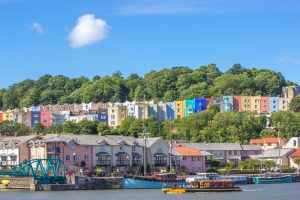 Our team is always looking forward, and the upcoming summer poses quite a few challenges. As new variants of the virus spread, we continue to prioritize the safety of our project participants and tutors while delivering the best programmes possible.
Our team is always looking forward, and the upcoming summer poses quite a few challenges. As new variants of the virus spread, we continue to prioritize the safety of our project participants and tutors while delivering the best programmes possible.
This summer we will hold our Summer Schools – Insight Into Bristol and Sutton Trust – virtually, building on the success of last years online delivery where over 300 students participated! They helped us and our project participants feel connected and motivated at a very difficult time. All participants who complete the scheme are eligible for a guaranteed contextual offer or interview for entry at the University.
We will also hold another Being BAME at Bristol event on the 8th of July. These are live chat events for Black, Asian and minority ethnic (BAME) students who plan to apply to university next academic year. You will hear from current BAME University of Bristol students about their experiences, offering the opportunity to ask questions about student life, tips on applying to university, and the range of opportunities on offer at the University of Bristol. You can still express an interest in attending using this form!
The Faculty of Life Sciences will host a week of virtual work experience sessions from June 28th to July 2nd: find out more details here. This is to help students in Year 10 and Year 12 compensate for the reduction in opportunities to undertake work experience in the fields of Life Sciences. Spaces for Year 12s are full, but Year 10s can still apply – fill in this form if you are interested!
We cannot wait to meet everyone remotely and hope to inspire a new generation of Bristol students to join us soon!


 participants to experience the university remotely, through a series of virtual events including academic sessions, study skills support, student-led society events and UCAS application support. You can read more about this year’s Next Step Bristol in
participants to experience the university remotely, through a series of virtual events including academic sessions, study skills support, student-led society events and UCAS application support. You can read more about this year’s Next Step Bristol in  Our team is always looking forward, and the upcoming summer poses quite a few challenges. As new variants of the virus spread, we continue to prioritize the safety of our project participants and tutors while delivering the best programmes possible.
Our team is always looking forward, and the upcoming summer poses quite a few challenges. As new variants of the virus spread, we continue to prioritize the safety of our project participants and tutors while delivering the best programmes possible. 
